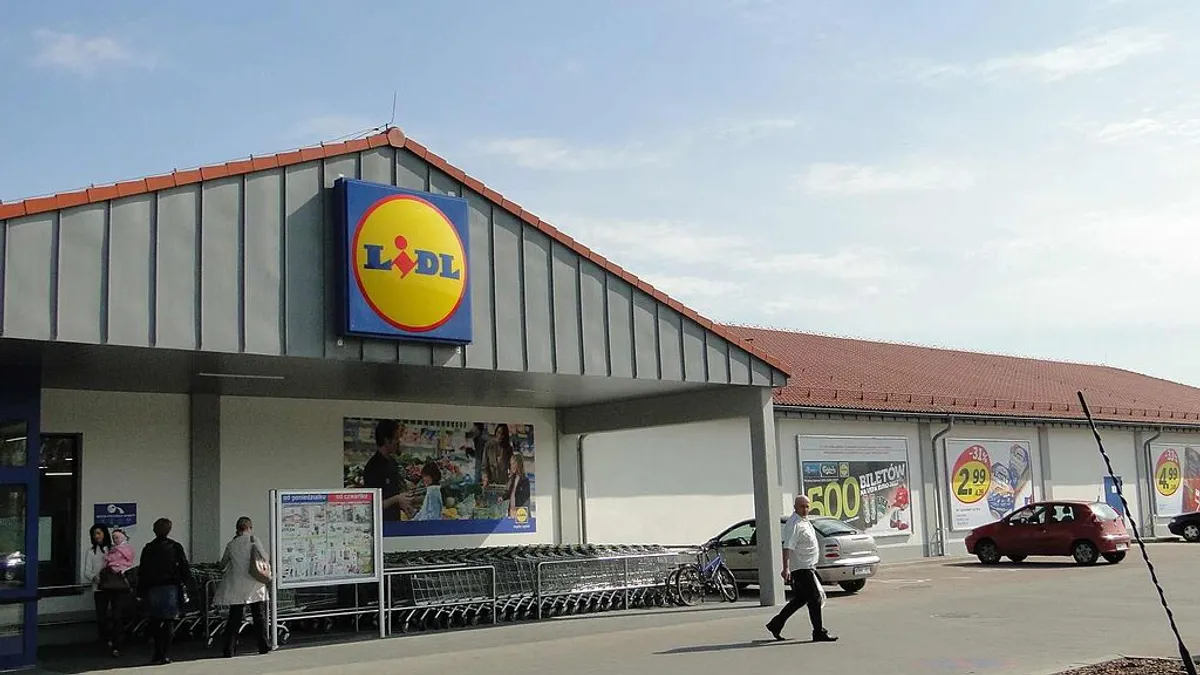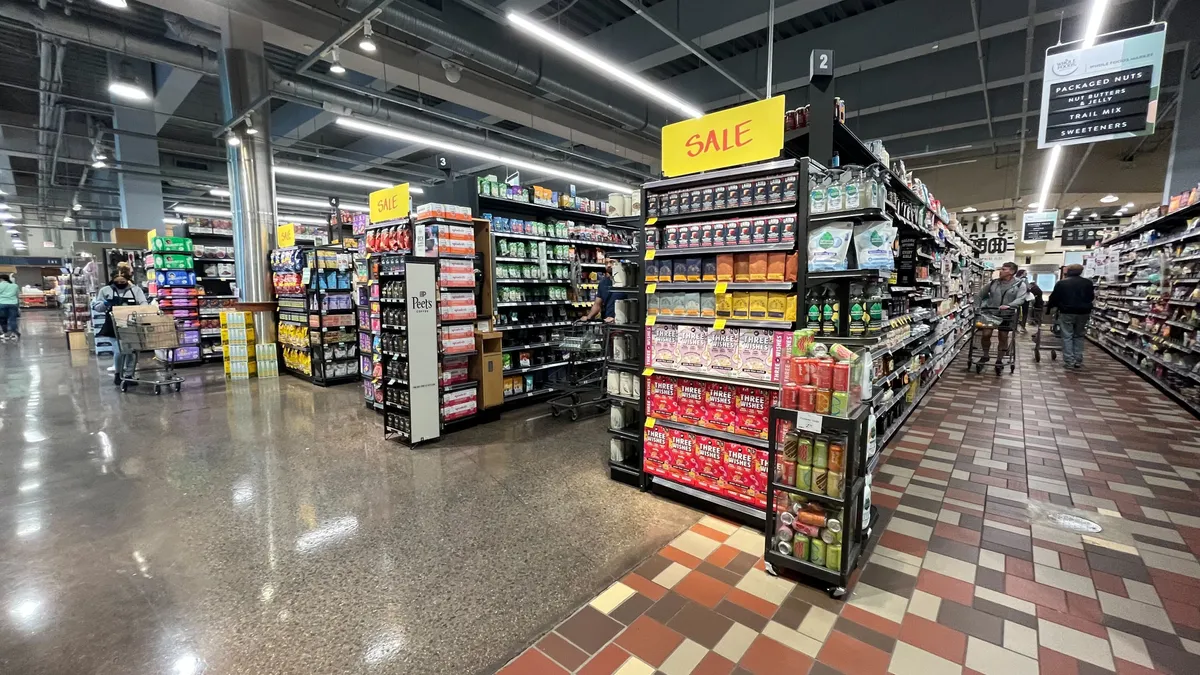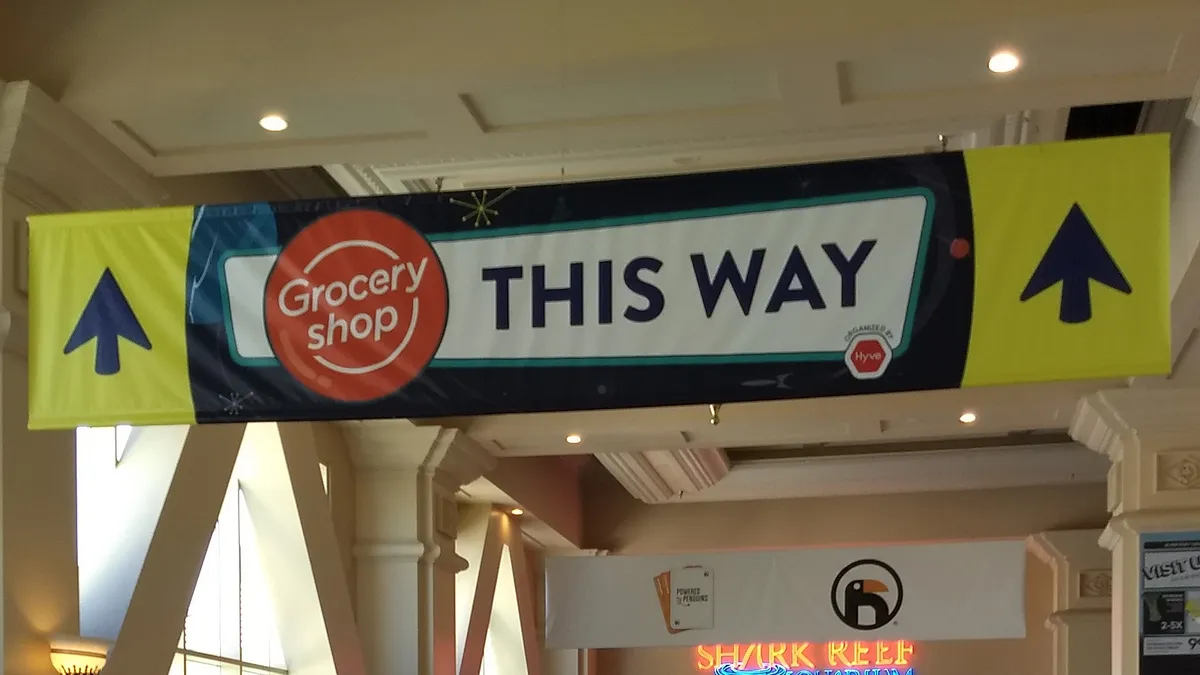Dive Brief:
- Discount chain Lidl has either bought land or is seeking approval from local officials for at least seven locations around Dallas, according to The Dallas Morning News. So far, the company has spent $10 million purchasing new land in the state.
- An analyst with Fung Global Retail & Technology estimates Lidl, which plans to open its first locations along the East Coast this summer, will take in $1 billion with 120 stores in 2018 and $4 billion with 300 stores by 2020.
- However, Lidl’s focus on rapid expansion could become a liability. "Given the proposed pace of store openings, there is a risk that Lidl will pursue quantity of physical space over quality of location,” wrote Fung Global Retail’s Deborah Weinswig in a recent report.
Dive Insight:
With its land buys in the Lone Star State, Lidl enters one of the most competitive, fast-growing grocery markets in the U.S. The German discounter appears to be embracing the challenge. A Google Maps search of its planned sites reveals four out of six locations are either adjacent to or across the street from Kroger stores, indicating the company has one of the state’s fastest-growing retailers in its sites.
Spurred by the suburban expansion surrounding Dallas and Houston, retailers such as Kroger, as well as Costco and homegrown favorite H-E-B, have quickly built stores that appeal to an increasingly affluent population. Kroger is investing $1.2 billion to build new stores and remodel old ones in the Houston and Dallas markets. H-E-B, meanwhile, opened a new store each month last year in the Houston area.
Bold moves aside, how does Lidl stack up against the competition? According to real estate firm JLL Group, suburban grocery stores in Texas tend to be larger than average. Kroger has built numerous Marketplace locations, which average 100,000 square feet, while Costco and Wal-Mart have expanded their large-footprint stores in recent years. Lidl stores, in contrast, average 36,000 feet and include a carefully curated selection of mostly private-label products.
The limited assortment of store brands could be a change of pace for some shoppers, but Lidl’s low prices may help them overcome any hesitation. In a recent preview of its Fredericksburg, Virginia location provided to The Washington Post, CEO Brendan Proctor noted Lidl’s U.S. stores will be 35% larger than its typical European model to allow for fresh bakeries, bigger produce sections and other touches that enhance the store experience.
It’s a strategy that could help Lidl’s small stores resonate in the state where everything’s bigger.










